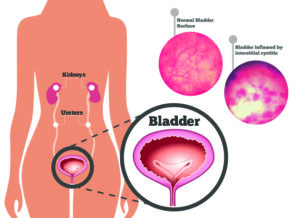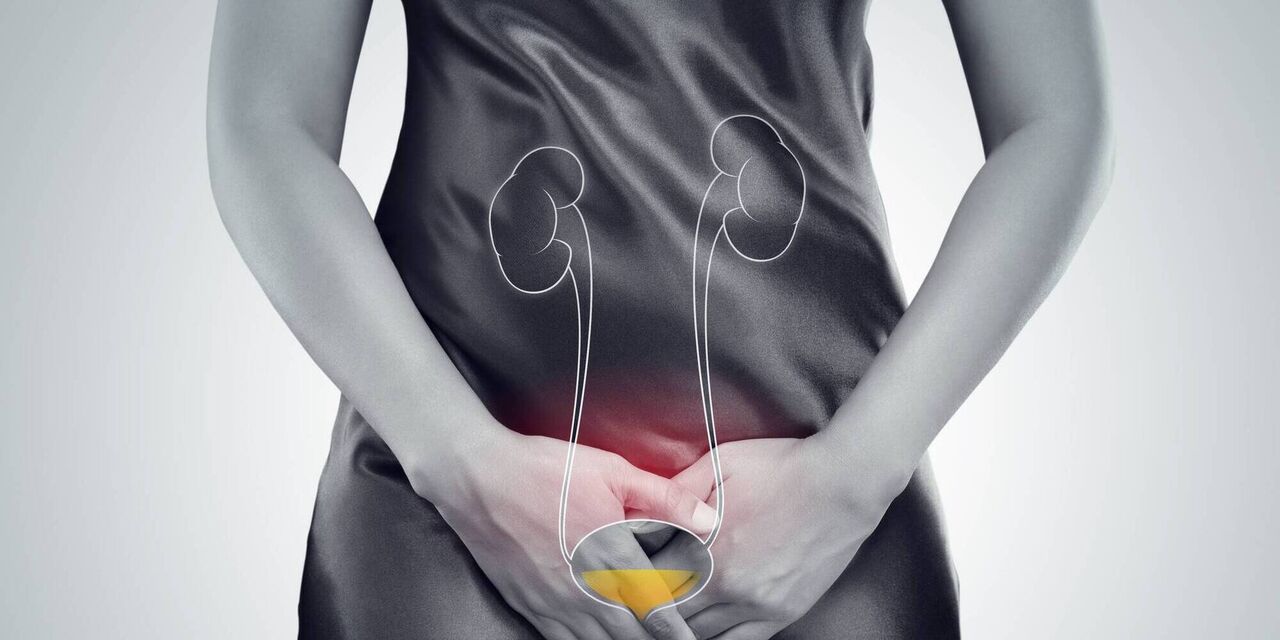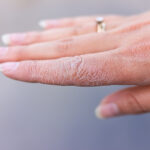Helpful Home Remedies for Cystitis
There are quite some helpful home remedies for cystitis, and since, urinary tract infections (UTIs) are caused by bacterial infections, doctors usually treat them with antibiotics.
But is it possible to treat a urinary tract infection without antibiotics?
Scientific research supports some natural and home remedies for cystitis or urinary tract infections, while others have been part of the traditional medical system for thousands of years.
SYMPTOMS of Cystitis
- Pain in the lower abdomen and back.
- Frequent, urgent, and painful urination. Urine often has a strong, unpleasant odour and may appear cloudy (from pus). A desire to urinate even after the bladder has been emptied.
- Children with this condition may experience a painful burning sensation when urinating.
CAUSES
Cystitis is an infection of the urinary bladder. It is the most frequent bacterial infection in women. About 10%-15% of them have recurrent bladder infections.
The cause is generally bacteria which have ascended up from the urinary opening: but, it is less frequently from infected urine sent down from the kidneys. The usual cause is ascended bacteria.
Cystitis most often occurs in females. The urinary outlet of the urethra is close to the vagina. Ways to treat it is given in the concluding subtopic of this article.
Frequency and urgency of burning urine is the obvious symptom of cystitis; but a home test can also be done. Purchase “Dipstick” at a pharmacy and follow the directions. A positive nitrate test will reveal the presence of a large quantity of white blood cells, indicating infection in the urinary tract.
Women who frequently have bladder infections often have enlarged bladders from trying to retain their urine. In order to maintain good urinary tract health, it is important to drink water and urinate frequently.
In older men, the cause of the bladder problem might be kidney stones. Blood in the urine could indicate a more serious problem. Consult a physician.
Bladder infection in men may signal prostate trouble.
Cyclamate (an artificial sweetener found in synthetic sugar) causes bladder tumors.
SEE ALSO: Vulvar Disorders
Home Remedies for Cystitis
Increase the fluid intake-lots of water, especially distilled, is best. Drink a half pint every 20 minutes for 3 hours, then one cup every hour. This is important.
Acidify the urine by drinking 1-2 quarts of cranberry juice per day, for the first day, and 1 quart a day thereafter while the crisis continues. It is the only fruit juice that remains acid until it reaches the kidneys. When you have this problem, citrus juice is not as good; since it tends to make the urine more alkaline, encouraging bacterial growth.
Eat a nourishing diet; avoid the wrong foods. The bladder and kidneys are closely associated; whatever helps one helps the other.
Potassium deficiencies can lead to renal (kidney) disorders. Prepare a broth with thick potato peelings, plus carrots, and other vegetables.
The use of aluminium cookware is one of several causes of cystic symptoms. Avoid zinc and iron supplements until this problem is healed.
YOU MAY LIKE: Natural Remedies for Dry Skin
Use Probiotics
Beneficial bacteria, called probiotics, can help keep the urinary tract healthy and free of harmful bacteria.
In particular, a group of probiotics called lactobacilli can help treat and prevent urinary tract infections.
Probiotics are produced in a wide variety of fermented and dairy products, including:
- Yogurt
- Kefir
- Some kind of cheese
- Sauerkraut
Get enough vitamin C
Vitamin C is an antioxidant that improves the function of the immune system.
Vitamin C also reacts with nitrates in the urine to form nitrous oxide that can kill bacteria.
This can lower the pH of the urine, making it less likely for bacteria to survive.
Like cranberry juice, people have used vitamin C in various ways to treat UTIs for thousands of years.
But there is still a lack of quality research to confirm whether increasing vitamin C intake can prevent or treat urinary tract infections.
Wipe back and forth
Many urinary tract infections develop when bacteria from the rectum or stool enter the urethra, the small canal that allows urine to leave the body.
Once in the urethra, bacteria can travel to other organs in the urinary tract, where they can cause infection.
After urinating, you should clean it so that bacteria do not come into contact with the genitals.
Use separate pieces of toilet paper to clean the genitals and anus.
Apply good sexual hygiene
S*x introduces bacteria and other microorganisms from outside the body into the urinary tract.
Practicing good sexual hygiene can help reduce the amount of bacteria that people can transmit during sex and other sexual activities.
Here are examples of good s*xual hygiene:
- Urinating before and right after s*x
- Use barrier methods of contraception, such as condoms
- Wash the genitals, especially the foreskin, before and after s*x.
- Wash your genitals or change condoms if you switch from anal to vaginal s*x
- Make sure your partner is aware of any current or previous urinary tract infections
Your doctor can help prevent the infection from getting worse.
If a person suspects they may have a UTI, they should see a doctor for advice on how to best treat this possible infection.
Antibiotics are not always needed to treat a urinary tract infection, but it is important to see your doctor if you have an infection or suspect an infection.
HERBS AND WATER THERAPY

On home remedies for cystitis, helpful herbs include juniper, lovage, parsley, uvi ursa, rupturewort, bearberry, birch, and prickly ash. Of course, do not add sweetener or milk to the tea.
Drink tea made from 2-3 crushed or blended garlic bulbs several times a day.
To relieve the pain and encourage healing, take hot sitz (sitting) baths twice a day, for 20 minutes. To one of those daily sitz baths, add 1 cup of vinegar. The next day, add 2 cloves crushed garlic or garlic juice to the water of one of the two baths.
A hot-water bottle placed in direct contact to the urethral and vaginal openings may be extremely helpful.
The treatment of cystitis must not be neglected:
Chronic cystitis in particular may be due to serious chronic disorders.
The treatment of cystitis consists in rest and local application of heat (packs, paddings, poultices, sitz baths), with antibiotics or chemotherapy if the doctor considers these necessary.
Complementary Measures
It is necessary to correct constipation, if this is suffered, by emptying the bowels every day.
It is essential to drink a lot of fluids, particularly water (at least 3 to 4 litres a day), preferably mineral water.
If the urine is alkaline, take one teaspoon of sodium bicarbonate in half a glass of water every two hours on the first day, every three or four hours on the second day, and every five to six hours on the third day.
Do not prolong treatment for more than three days, except upon medical advice.
In cystitis with acid urine, it is advisable to drink diluted raw leek juice and lemon juice.
Dietotherapy
A suitable diet greatly helps to cure cystitis: the diet will be mainly vegetarian, abstaining from all types of toxins (coffee, tea, tobacco, alcohol) and spices, salt, and cured meats.
Abundant consumption of the following is recommended:
- Turnips and celery, for their diuretic effects
- Barley and papaya, for their anti-inflammatory action on the urinary tracts
- Leeks, which are rich in alkaline salts, antiseptics and laxatives
Phytotherapy
Several medicinal plants have an antiseptic and diuretic action, and are very useful in the treatment of cystitis.
Some, such as bearberry, are not well tolerated by everybody and must not be taken for long periods of time, due to their excess in tannins.
Others, such as juniper berries, must not be used in pregnant women or in cases of renal infections
The plants most commonly used for this disorder are:
Birch (Betula alba L. = B. pendula Roth. = B. verrucosa Ehr.): Take three cups a day of tea, each cup brewed with two or three dried or fresh leaves: pour boiling water over the leaves and leave for ten minutes.
Celery (Apium graveolens L.): One small piece of fresh root or one tablespoon of shredded dried root per cup. Boil for a few minutes, cool, strain and drink two to three cups per day.
Juniper (Junijperus communis L.): Juniper is quite helpful for home remedies for cystitis. Chew one fresh berry four or five times a day. Use lightly ground dried berries (two or three berries per cup) to prepare a tea with boiling water; leave for fifteen minutes. Two Cups a day.
Restharrow (cammock) (Ononis spinosa L.): Prepare each cup with boiling water poured on two teaspoons of shredded root or herb. Leave for fifteen minutes. Take two to three cups per day.
Bearberry (Arctostaphylos uva-ursi Spreng.): On home remedies for cystitis, pour half a litre of boiling water on 4 to 6 teaspoons of dried leaves. Leave overnight. Take one reheated cup in the morning, and one at night.
Herniaria (Herniaria glabra L.): Leave the fresh herb, which is much more effective than the dried one, overnight in water; and then take three cups, spaced out during the day.
If the fresh plant is not available, prepare a tea putting one or two teaspoons of dried herb in a cup of boiling water, and leave it for half an hour. Also take three cups a day.
A mixture of these medicinal plants may be used to prepare tea, or different ones can be used during the treatment.
Special cystitis mixes in more adequate proportions, are available commercially.
Causes of Hypertension in Young Adults
Oligospermia Natural Treatment
Home Remedies for Motion Sickness
How To Live With HIV-Positive Person

A graduate of Computer Science and Information Management Technology. Diploma – Caregiving, Certificates – Dementia and Diabetes Awareness and Management. A researcher, blogger, songwriter, singer and acoustic guitarist. Born in an environment where natural talents such as healing are imparted at our natural birth. This natural talents of healing is the result of our genetic inheritance and the training from family environment.














